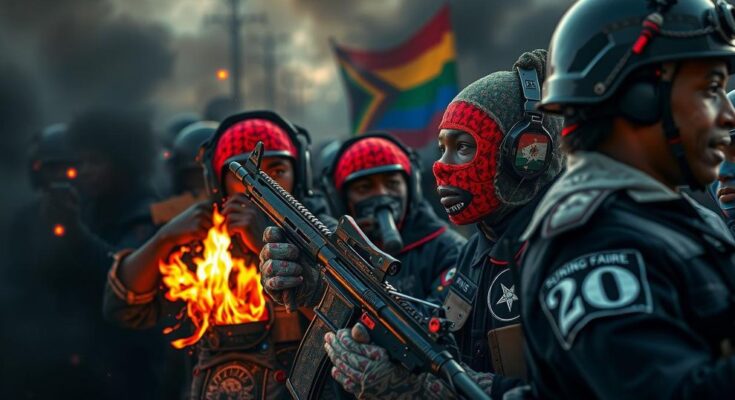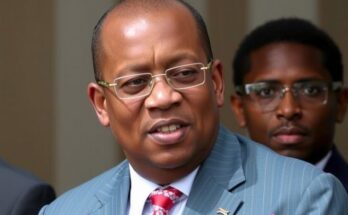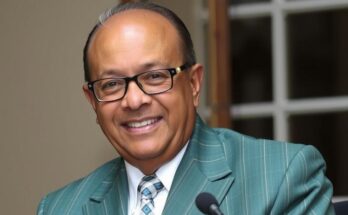In Mozambique, gunmen killed two key figures of the Podemos party—lawyer Elvino Dias and representative Paulo Guambe—prior to scheduled protests against disputed election results. This act of violence reflects the heightened political tensions connected to the ongoing electoral process, marred by allegations of rigging and oppression of dissent by the ruling Frelimo party. Advocates and observers are calling attention to the grave implications of such political assassinations and the risks faced by opposition members in the country.
Gunmen in Mozambique have tragically assassinated two prominent officials from the Podemos opposition party in the lead-up to anticipated protests against contentious electoral results. The victims, Elvino Dias, the party’s lawyer, and Paulo Guambe, an official representative, were fatally shot late Friday night in Maputo. Eyewitness accounts and video footage reveal the gruesome nature of the attack, with a BMW SUV riddled with gunfire and the bodies of the deceased visibly bloodied in the front seats. This incident unfolds against a backdrop of heightened political tension in Mozambique, as citizens await the results of the October 9 election, marred by allegations of vote-rigging and suppression of dissent directed at the ruling Front for the Liberation of Mozambique (Frelimo) party, which has held power for 49 years. Podemos has denounced preliminary results indicating a Frelimo victory and has called for a nationwide strike scheduled for Monday, reflecting their outright rejection of the election results. Adriano Nuvunga, the director of Mozambique’s Center for Democracy and Human Rights (CDD), characterized the killings as a stark representation of enduring injustice within the nation. He stated that, “They were brutally assassinated [in a] cold-blooded murder.” The Human Rights Watch organization has also verified the incident, highlighting the severe implications of political violence in the country. As of the latest election updates, Frelimo is reportedly leading in all provinces, with Daniel Chapo positioned to succeed President Filipe Nyusi, who has completed a maximum of two terms. Allegations from opposition parties and Western observers persist, citing instances of electoral fraud, such as vote-buying and coercion, particularly in areas historically dominated by Frelimo. With the final election outcomes expected to be announced on October 24, there exist apprehensions regarding the potential for violent protests on Monday. Past incidents have seen Mozambique’s security forces resort to deadly force against political demonstrators, creating a perilous environment for free expression and political dissent in the nation.
The political landscape in Mozambique has been fraught with tension and conflict since the institution of democratic elections in 1994, following decades of single-party rule marked by civil war. The current political climate has seen a resurgence of allegations against the Frelimo party, including vote-rigging and suppression of opposition. As the country approaches election results, discontent has grown among opposition factions, particularly as they prepare for protests amidst fears of violence. Human rights organizations have increasingly flagged the dangers posed to political activists, emphasizing the need for justice and redress in a politically charged environment.
The assassination of Elvino Dias and Paulo Guambe serves as a harrowing indicator of the escalating violence and political unrest in Mozambique. With the upcoming protests against disputed election results, the political climate remains tense, raising concerns over civil liberties and the safety of opposition figures. As the nation grapples with accusations of electoral fraud and the longstanding dominance of the Frelimo party, the implications of these killings resonate deeply within the ongoing struggle for democratic governance and human rights in Mozambique.
Original Source: www.aljazeera.com




